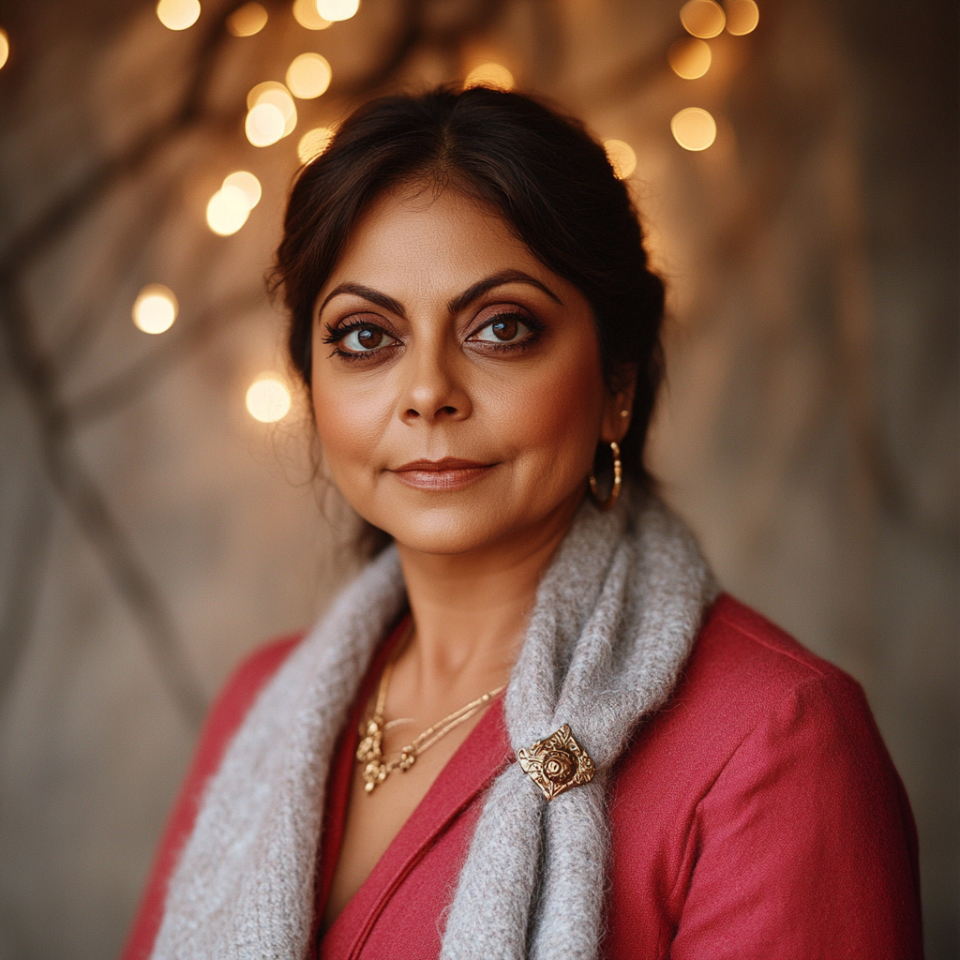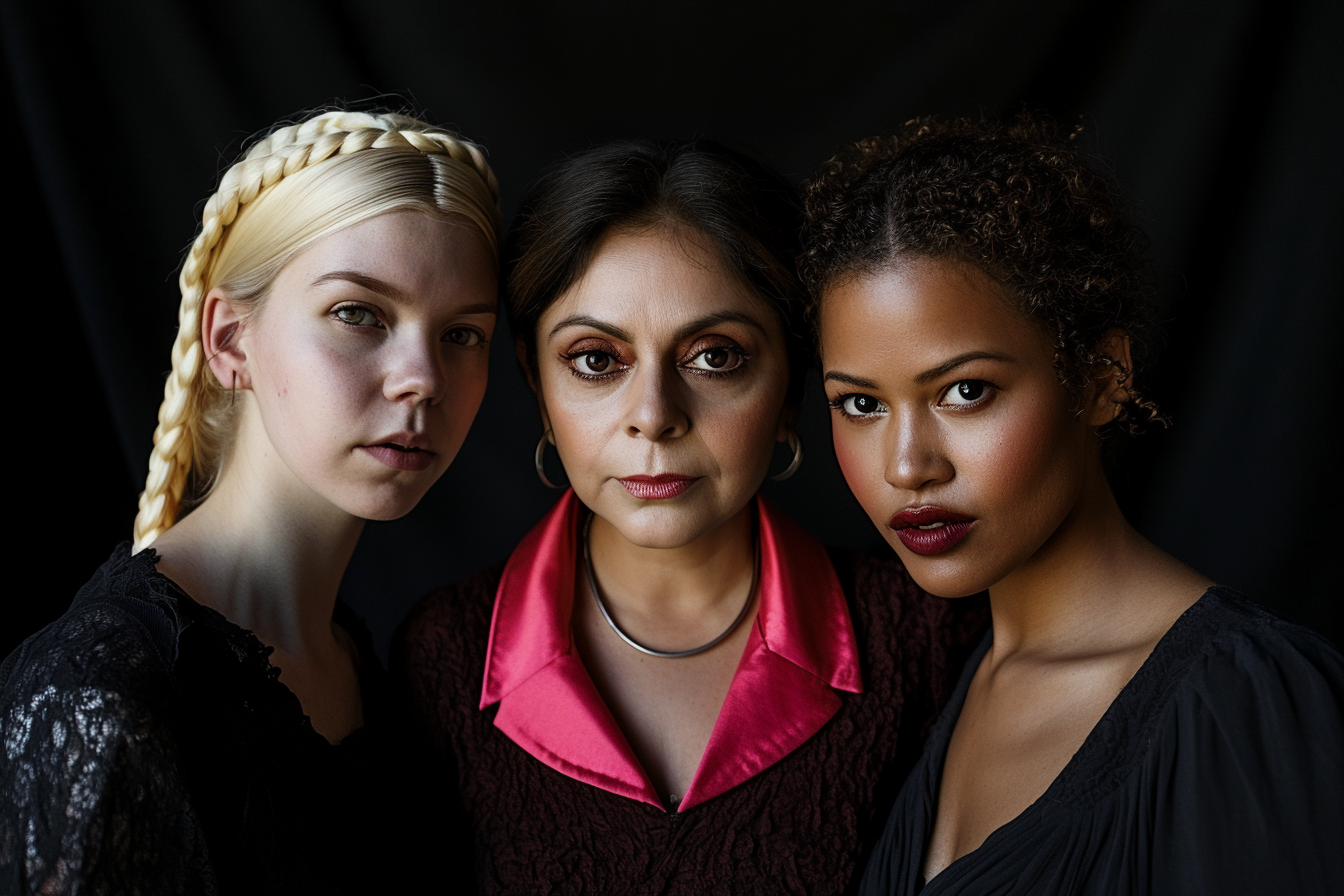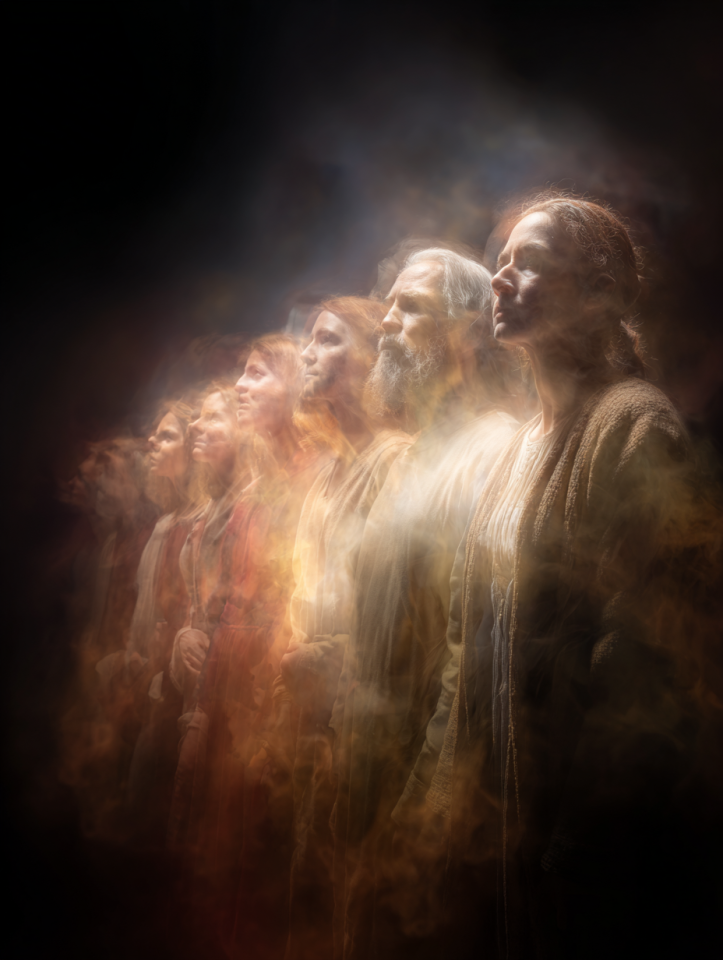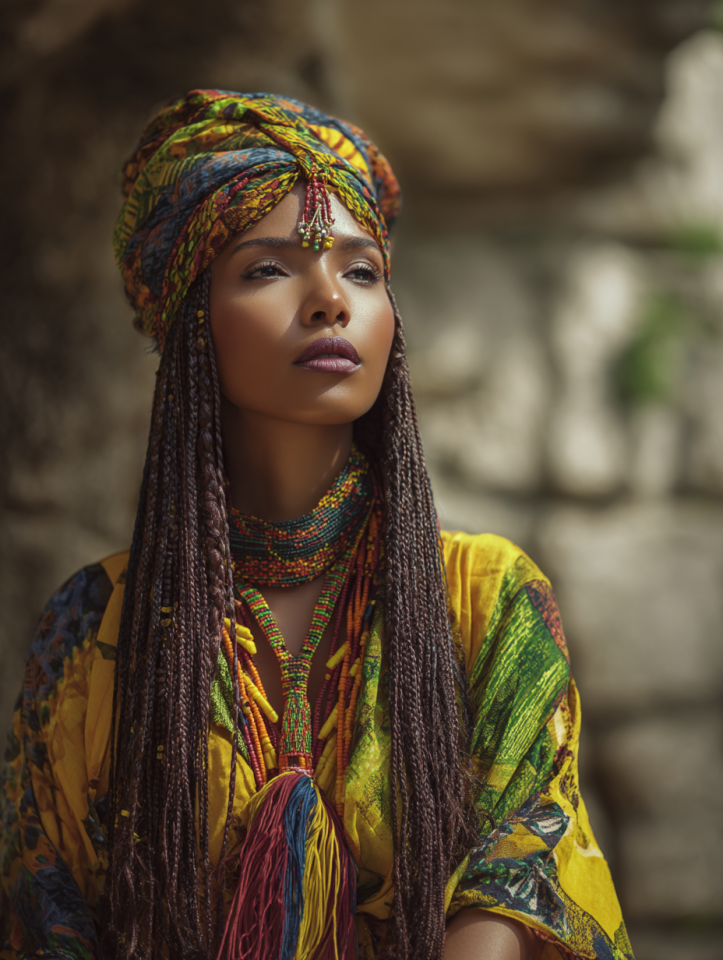Dēkla (DEHK-lah)
Primal Unbound Prihleudhōs Deity
Dēkla (a.k.a. Lachesis, Verðandi, Sudjenica, the Line Measured, She of the Growing Path)
If Laima is the spark that ignites a life, then **Dēkla is the steady flame** that nurtures its shape. She is the middle sister, the measurer, the quiet observer of growth and consequence. When a child takes their first step, utters a first word, or makes a first choice — Dēkla is present. She walks not in the hush of birth, but in the rhythm of days. It is she who lays out the road ahead, brick by brick, marking every fork and shadow. In her hands is the measuring cord — not to bind, but to trace. She is known across cultures: as **Lachesis**, the measurer of the thread; as **Verðandi**, the becoming; as one of the **Sudjenice**, Slavic fate women who divine a child’s fortune with spinning and song.
To the Baltic heart, Dēkla is protector of children and their early fates. She tends the vulnerable, guards the innocent, and weighs the unfolding of time. Unlike her sisters, she lingers long — staying beside a soul through education, injury, laughter, and rebellion. While Laima touches the potential, Dēkla watches the *choices*. In folktales, she visits cradles not just at birth, but again and again in moments of danger or doubt. Her tools are not sharp or distant; she carries a wooden yardstick, a shepherd’s crook, a child’s toy mended with thread.
In some stories, she speaks through animals — a crow at a window, a dog refusing to leave a sickbed, a fox who turns just before the hunter's arrow. In others, she is the gentle voice inside the conscience of the growing soul, suggesting caution or courage. She is the mother you remember from dreams, the teacher who left a word that changed your path, the friend whose laughter returned you to yourself. Her face is often mistaken for Laima’s, but her gaze is more rooted, her hands always in motion — tidying, adjusting, comforting, correcting.
To those who feel lost in youth, or trapped in circumstance, Dēkla is not a savior — she is a witness and a guide. She will not carry you, but she will walk beside. Her blessings are subtle: a missed train that kept you from harm, a stranger’s kindness, a memory that returned just in time. She does not judge; she measures. And in her measuring, she reminds all beings that growth is not linear, but lived.
Physical Description
General Physical Condition
Dēkla is often seen as a woman in the midst of activity — mending, stitching, planting, teaching. Her form shifts with context, but she is never grand or aloof. Her skin is sun-warmed clay or brown oak bark, her hands weathered like those who work with children, tools, or earth. Her hair is thick and plaited down her back, the color of chestnuts or fresh loam, often tied with ribbons from other lives — scraps of cloth that bear meaning only to her. She wears aprons, sashes, or shawls adorned with simple runes, buttons, or symbols of protection. Her eyes are steady and deep-set, often described as “the kind that don’t look away.”
She does not glow or shimmer like her sisters — instead, she feels *real*. Mortal. Kind. The kind of goddess who might sit beside you and listen to your whole story without speaking until the end.
Mental characteristics
Sexuality
Dēkla forms rare but lasting emotional bonds. She experiences love slowly, through shared growth and care rather than attraction or lust. Her attachments transcend gender or form, often rooted in mutual effort or enduring companionship. While she may appear as a mother or guardian, her romantic identity is often expressed through deep, domestic connections — living side-by-side, working through seasons, sharing silence. She does not require union, but when she chooses to stay, it is always for love.

Species
Realm
Date of Birth
Evos Todhchaí
Gheydh
Gheydh
Family
Children
Sex
Female
Sexuality
Celestiaphilic
















